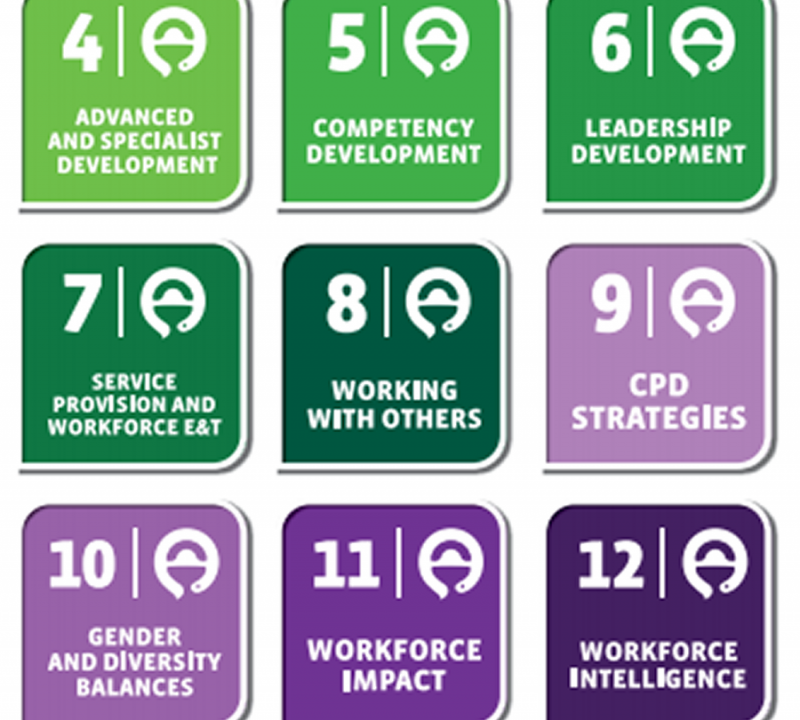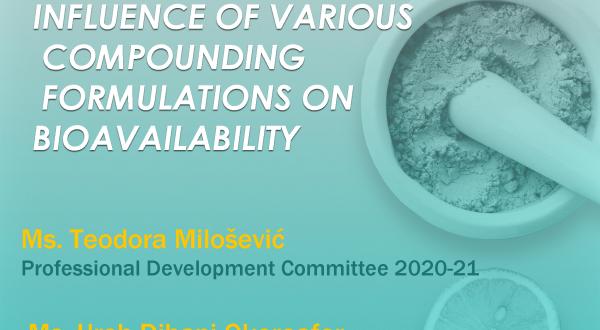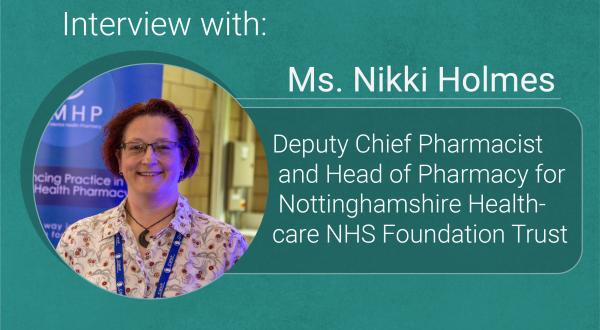
IPSF Commitment to Action - FIP Nanjing Statements and Pharmaceutical Workforce Development Goals
The International Pharmaceutical Students’ Federation (IPSF) is the voice of over 350,000 pharmacy students and recent graduates in 88 different countries worldwide.
In November 2016, the International Pharmaceutical Federation (FIP) organised the Global Conference on Pharmacy and Pharmaceutical Sciences Education in Nanjing, China, resulting in the release of three crucial documents for the future of the pharmaceutical profession; the Global Vision for the Workforce, the Workforce Development Goals (WDGs) and the Nanjing Statements on Pharmacy and Pharmaceutical Sciences Education. Together, these documents serve to provide a common vision and goals for the development of the profession. Moreover, they serve to guide national pharmaceutical practices as they attempt to unify their approaches to solving global healthcare challenges.
Prior to the release of final versions, various stakeholders were invited for consultation, among which was IPSF. Some of the input provided by IPSF can be found summarized below:
- The development of academic capacity needs to meet the necessary standards required by the workforce and ensure access to quality education for all students
- There must be greater focus and support for higher education pathways to allow for the growth of academic capacity
- Programmes and related pathways must be both consistent and of high quality
- There should be an attempt to define critical stakeholder input in the development of adequate education programmes. Student input should also be considered when developing fair policies of high quality
- Complex pharmaceutical care should be expanded into specializations, including industrial and administrative areas
- Policy needs to link leadership development with competency attainment
- Strategies for the development of leadership skills should be included in formal education
- Continuous professional development strategies need to be initiated on a student level
- There should be a greater emphasis on healthcare informatics and pharmacy involvement in the advancement of active surveillance technology applications
Based on these recommendations, IPSF, as the leading global organisation for pharmacy students and recent graduates, is committed to using its best efforts to carry out the action plan produced from the proceedings in Nanjing.
On 4th December, 2017, IPSF hosted a webinar titled, “Webinar to Celebrate Global Pharmacy Education Statements 1 Year Anniversary”. This webinar reviewed the core efforts of IPSF carrying out the WDGs. During the webinar, two guest speakers were present; Professor Ian Bates, Director of the FIPEd Education Development Team and Dr Andreia Bruno, former FIPEd staff and current professor at Monash University, Australia. Both speakers were heavily involved in the formulation of the original draft of the WDGs.
Table 1: Key efforts by IPSF concerning several WDGs
|
Cluster |
WDG |
Remarks |
|
Academy |
2 - Foundation training and early career development |
IPSF contributed to consultations regarding the 5-year action plan on Health Employment and Economic Growth, developed jointly by ILO, OECD and WHO, in December, 2016. Since then, IPSF has been heavily involved in implementing these strategies and approaches in its policies, linking together SDGs and WDGs, as well as drawing from the WHO Workforce 2030 Global Strategy on Human Resources for Health. |
|
Academy |
3 - Quality assurance |
|
|
Professional Development |
5 - Competency development |
Throughout the 2016/2017 mandate, IPSF increased the frequency of its Trainers Development Camps (TDCs) in key regions (two held by the African Regional Office in Nigeria and Kenya and one held by the Eastern Mediterranean Regional Office in Tunisia. Upcoming TDCs will be held by the Asia-Pacific Regional Office and the Pan-American Regional Office. IPSF also expanded on its delivery of Professional Development (PD) competitions, including a guest Patient Counselling Event and Clinical Skills Event at two European Pharmaceutical Students’ Association (EPSA) congresses in 2016 and 2017. IPSF continues to also provide grants to its member associations in organizing PD competitions and grants to outstanding individuals wishing to attend TDCs. |
|
Professional Development |
6 - Leadership development |
Besides encouraging more TDCs to be held globally, as specified above, IPSF continues the practice of holding the Leaders in Training programme prior to all Regional Symposia and World Congresses. |
|
Professional Development |
8 - Working with others in the healthcare team |
IPSF has had representatives present at the 4th Global Forum on Human Resources for Health in Dublin in November, 2017 and the accompanying Youth Forum. IPSF had a panellist on the roundtable discussions surrounding Job Creation and Decent Work. RPSA, Rwanda, a member of IPSF, was also the host of the 2017 World Healthcare Students’ Symposium (WHSS), an event which emphasises the importance of interprofessional collaboration. |
|
Systems |
11 - Workforce impact and effect on health improvement |
IPSF continues to dedicate its resources to the health workforce, following global developments closely. IPSF submitted feedback on the WHO 13th General Programme of Work in October 2017, as well as delivered an associated statement at the 4th WHO Executive Board Special Session in November 2017. IPSF also continues to work closely in World Healthcare Students’ Alliance (WHSA) and the WHSS. |
|
Systems |
13 - Workforce policy formation |
Throughout 2017, IPSF built on its Alumni Network for professional feedback on the success of proposed workforce driving forces and possible realignment of IPSF technical policies. |
IPSF shall invest further efforts in ensuring a smooth transition from pharmacy students to healthcare professionals.
As the global organization that represents pharmacy students worldwide, IPSF and its member associations are one of the biggest stakeholders in global health that are to be affected by changes brought about by the implementation of the recommendations put forward by the WDGs, Nanjing Statements, SDGs and related action plans, frameworks and strategies. As the Nanjing documents are directives for the future of pharmacy education and practice, we need to ensure that our voice is heard and that we invest the majority of our own resources in their implementation. Thus, we must recognize our role as a youth healthcare organization and how important it is to have a voice in consultation processes such as these that will inevitably shape our future.



